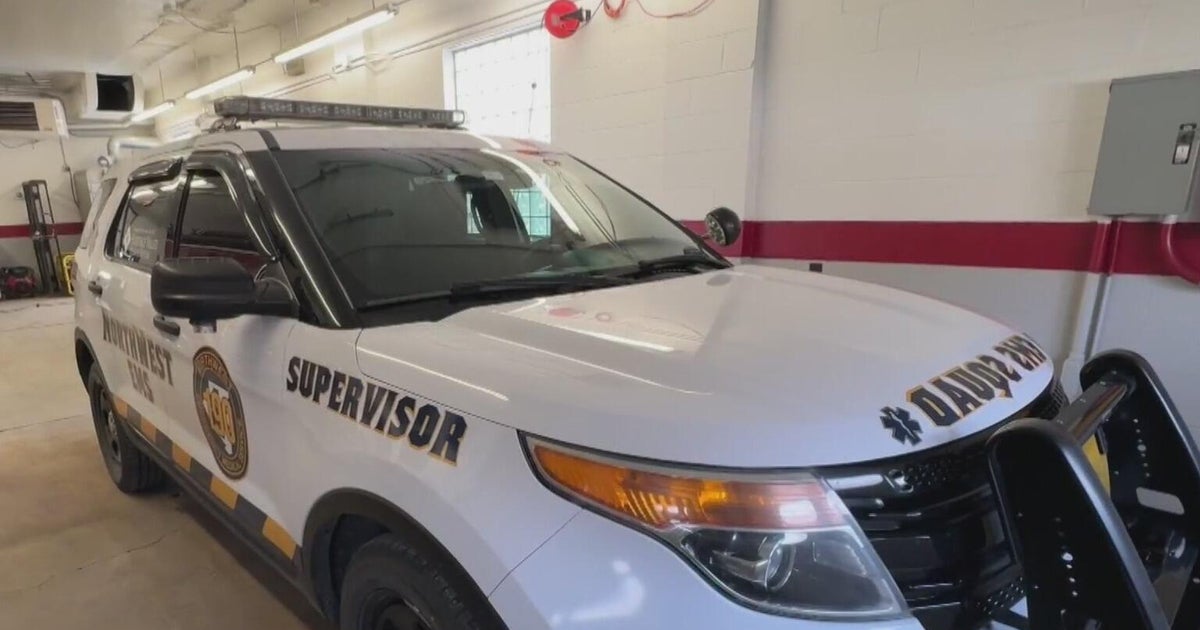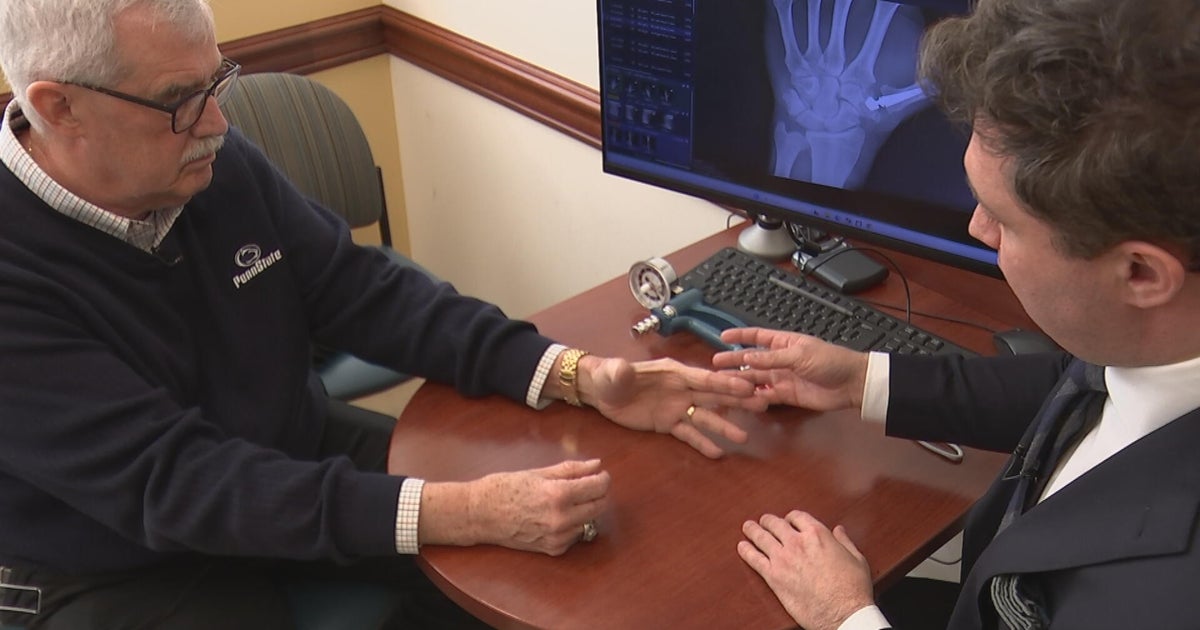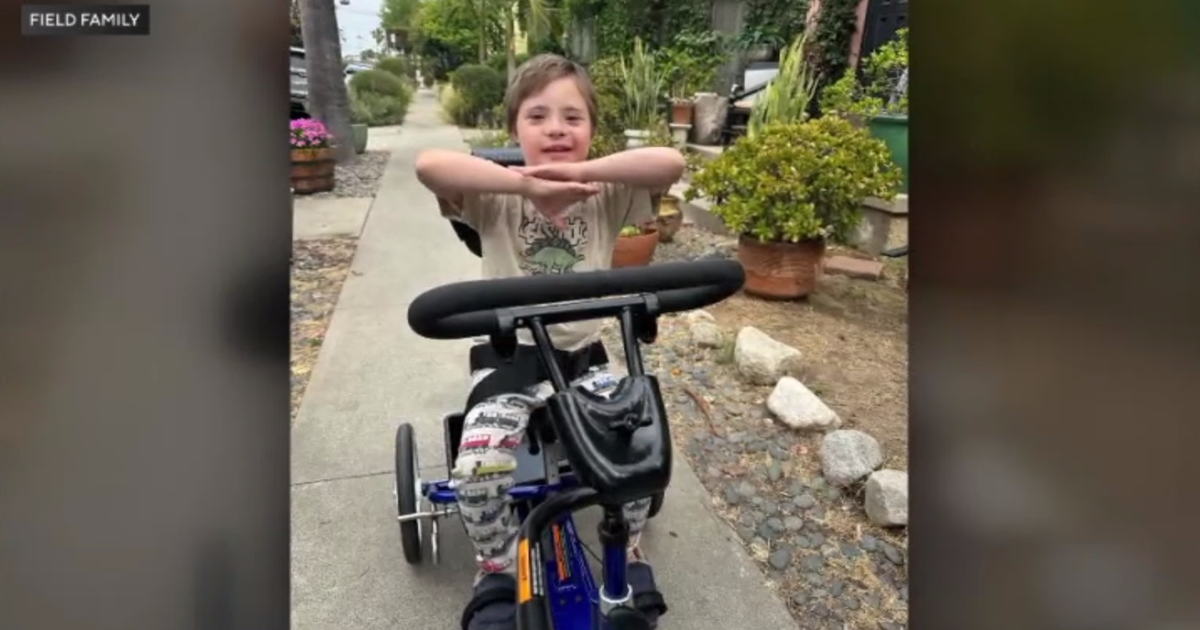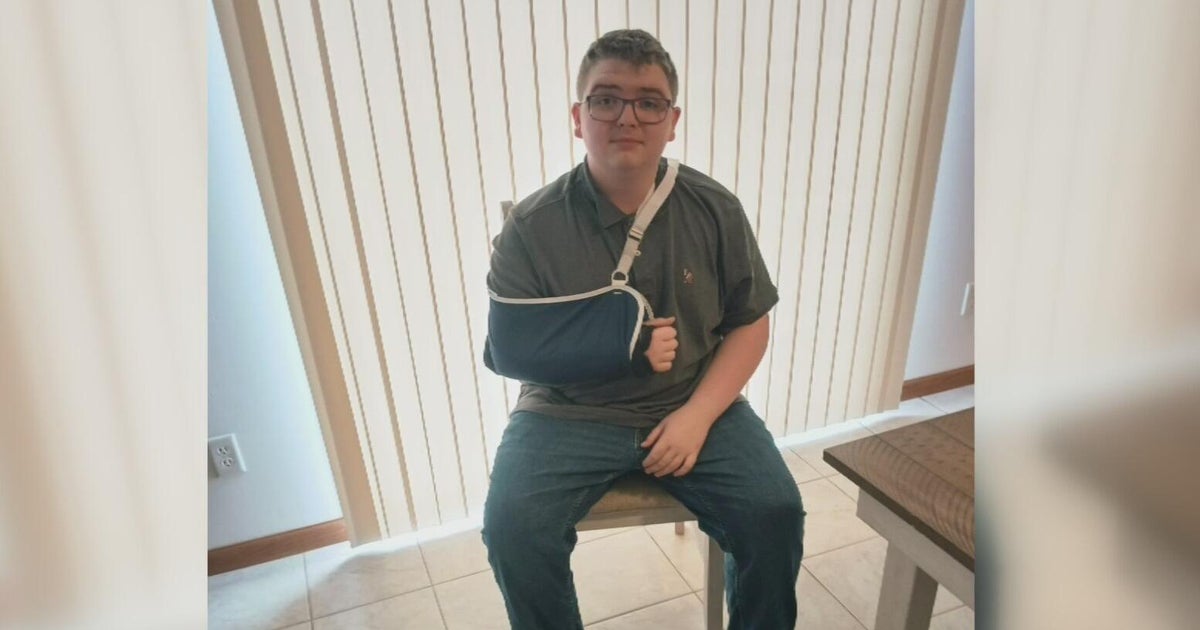'Anesthesia Awareness:' Waking Up During Surgery Can Have Long Lasting Psychological Affects
NEW YORK (CBSNewYork) -- Having surgery can be a frightening prospect, but imagine waking up during that surgery when you're not supposed to.
As CBS2's Kristine Johnson explained, it happens and the trauma can be life-changing if you find yourself awake under the knife.
"I heard yelling and screaming, and then the room became more real," Jim Sabastian said.
"I could hear all these people panicking around me, but I must have been strapped to the table so I wouldn't move," David Pletzner said.
Those are terrified recollections from surgical patients.
"I saw the three lights of the operating room on me, and then the next thing, and then a lot of pain in my neck -- were yanking on my head and pulling it back like this," Sabastian said.
"Somebody said, 'He's awake,'" Pletzner added.
Sabastian and Pletzner both woke when they were supposed to be under anesthesia. It's reported in about two of every 1,000 patients, but those who experience "anesthesia awareness: said it's nothing short of traumatizing.
"The surgeon was freaking out with the anesthesiologist because he was running out of time," Sabastian said.
Sabastian was having emergency surgery for a ruptured appendix.
Dr. Kiran Patel is an anesthesiologist who said anesthesia awareness has been associated with certain types of procedure.
"That would include cardiac surgery, high-risk Cesarean sections, or trauma," Dr. Patel said.
It can leave doctors scrambling and patients in distress.
"We have to balance their safety and really honestly keeping them alive. We can't give more anesthesia because their vital signs can't support it," Dr. Patel explained.
Pletzner has had multiple surgeries. He's also had anesthesia awareness more than once.
"I woke up as they were either drilling or sawing my skull, and it was kind of like an out-of-body experience," Pletzner said.
He said thankfully he didn't feel anything then, though he wasn't so lucky another time.
"I remember that like it was yesterday, because I could feel them with the needle in my finger," he said.
Pletzner needed skin grafts on his hand, when he woke up during surgery this time, he said he remembers screaming from the pain.
"This was horrific," he said.
"They'll experience nightmares. They'll experience flashbacks. This can also lead to depression," Dr. Matthew Lorber said.
Dr. Matthew Lorber, a psychiatrist, said the experiences can also lead to post-traumatic stress disorder. Both Pletzner and Sabastian said they have moved on, but they dread any future procedures.
"Unless it's absolutely life-threatening and completely necessary, I will not go for any surgery, not after that," Sabastian said.
Whether you're having a high risk procedure or just afraid you mat experience anesthesia awareness. Experts suggest discussing it with your doctor.
If it does happen, even having that conversation can reduce any potential trauma you may experience.







